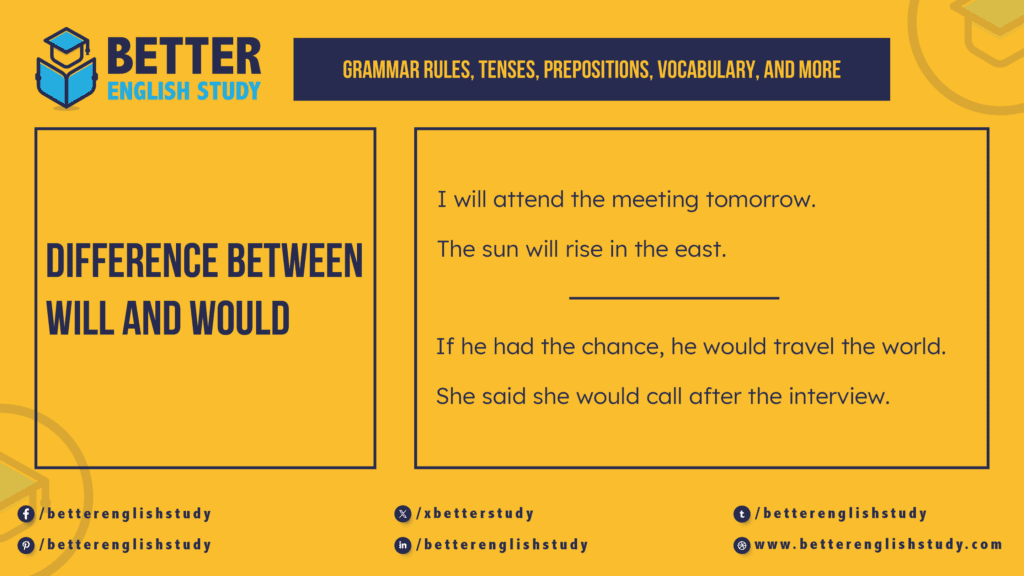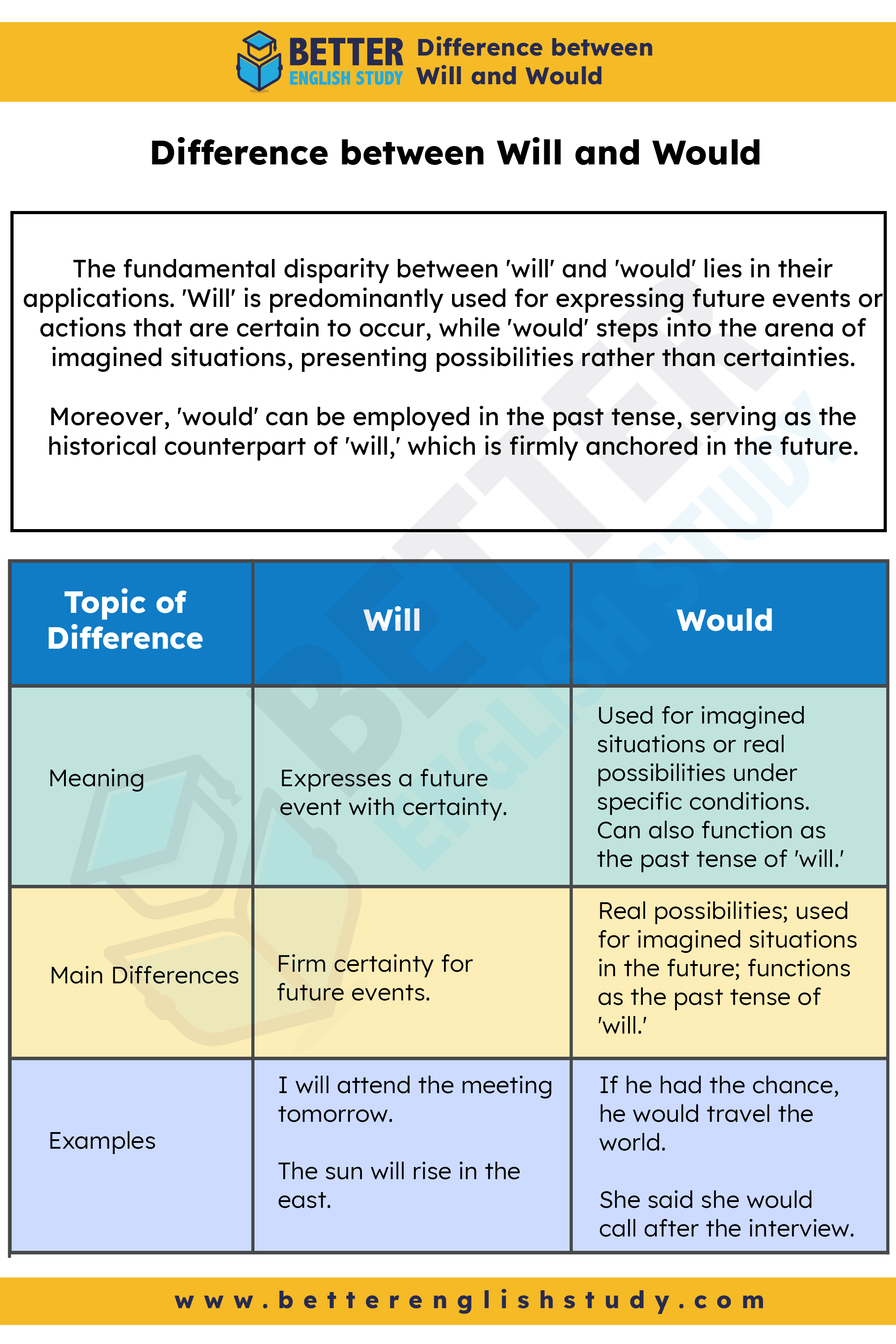
Embarking on the linguistic journey of English, learners often find themselves at the crossroads of ‘will’ and ‘would,’ two modal auxiliary verbs with subtle yet significant differences. These distinctions can be pivotal in shaping the tone and meaning of sentences, making it essential for language enthusiasts to unravel their intricacies.
In this exploration, we will delve into the realm of ‘will’ vs ‘would,’ unraveling their nuances and shedding light on when to appropriately wield these linguistic tools.
Difference between Will and Would
The fundamental disparity between ‘will’ and ‘would’ lies in their applications. ‘Will’ is predominantly used for expressing future events or actions that are certain to occur, while ‘would’ steps into the arena of imagined situations, presenting possibilities rather than certainties. Moreover, ‘would’ can be employed in the past tense, serving as the historical counterpart of ‘will,’ which is firmly anchored in the future.
| Topic of Difference | Will | Would |
| Meaning | Expresses a future event with certainty. | Used for imagined situations or real possibilities under specific conditions. Can also function as the past tense of ‘will.’ |
| Main Differences | Firm certainty for future events. | Real possibilities; used for imagined situations in the future; functions as the past tense of ‘will.’ |
| Examples | I will attend the meeting tomorrow. The sun will rise in the east. | If he had the chance, he would travel the world. She said she would call after the interview. |
1. Expressing Future Events
- Will: I will meet you at the airport.
‘Will’ is used when expressing a future event with certainty.
- Would: He would visit if he had the time.
‘Would’ here conveys a potential visit, contingent on the availability of time.
2. Real Possibilities and Imagined Situations
- Will: The concert will start at 7 PM.
‘Will’ expresses a real and certain future event.
- Would: If I won the lottery, I would buy a beach house.
‘Would’ is used to articulate an imagined situation or a dream, highlighting the conditional nature of winning the lottery.
3. Politeness
- Will: I will help you with your bags.
‘Will’ can be employed to offer assistance in a direct and courteous manner.
- Would: Would you mind passing the salt, please?
‘Would’ is often considered more polite, especially when making requests or seeking permission.
Is Would or Will More Polite?
‘Would’ is generally considered more polite than ‘will.’ When making requests, seeking permission, or expressing courtesy, ‘would’ is the preferred choice for its softer and more deferential tone.
Examples
- Will: I will help you with your bags.
This statement is straightforward and helpful but lacks a polite touch.
- Would: Would you like assistance with your bags?
Here, ‘would’ adds a layer of politeness, turning the offer into a more considerate inquiry.

Should I Say I Will or I Would?
The choice between ‘will’ and ‘would’ depends on the context. ‘Will’ is used for certain future events, while ‘would’ is employed for imagined situations or real possibilities under specific conditions.
Examples
- Will: I will attend the meeting at 3 PM.
Use ‘will’ when expressing a definite future event or action.
- Would: I would travel the world if I had the chance.
‘Would’ is used when expressing hypothetical or imagined situations.
Can I Use Would for Future?
Indeed, ‘would’ can be used to discuss future events, especially when conditions or uncertainties are involved.
Example
- I would attend the conference if my schedule permits.
In this example, ‘would’ is employed to express the speaker’s intention to attend the conference, contingent on their schedule.
Can I Use Would for Past Tense?
Absolutely, ‘would’ serves as the past tense of ‘will.’ It is used to convey actions or events that occurred in the past, offering a nuanced perspective on historical occurrences.
Example
- When I was a child, I would play in the park every day.
In this example, ‘would’ is used to describe a habitual action (playing in the park) that occurred regularly in the past.
In conclusion, mastering the usage of ‘will’ and ‘would’ is pivotal for effective communication in English. By understanding their distinct roles in expressing certainty, possibilities, and politeness, learners can navigate the temporal dimensions of language with finesse and accuracy.
